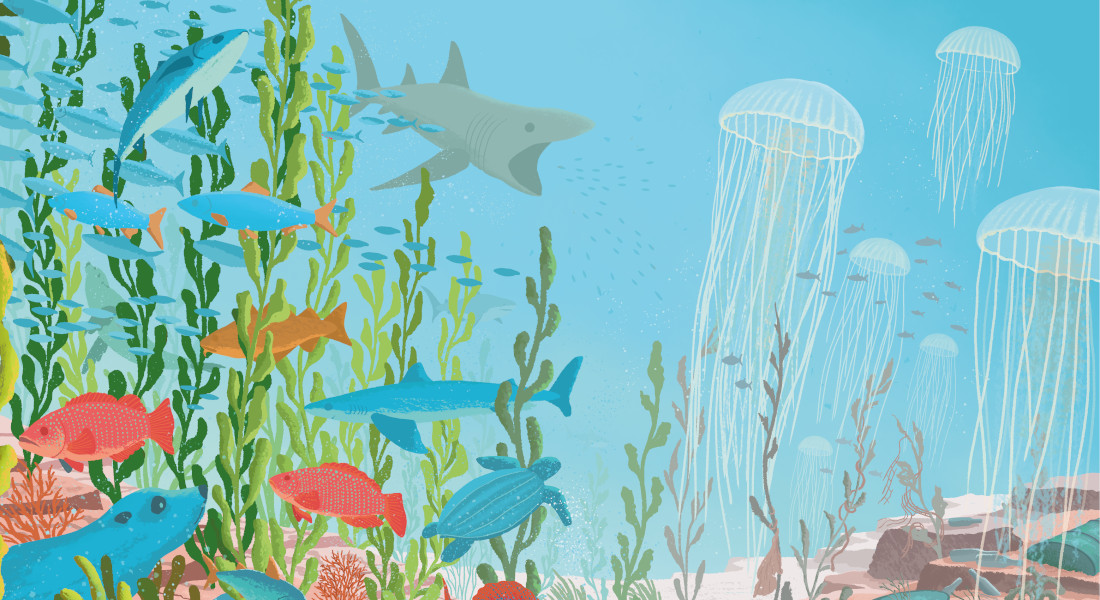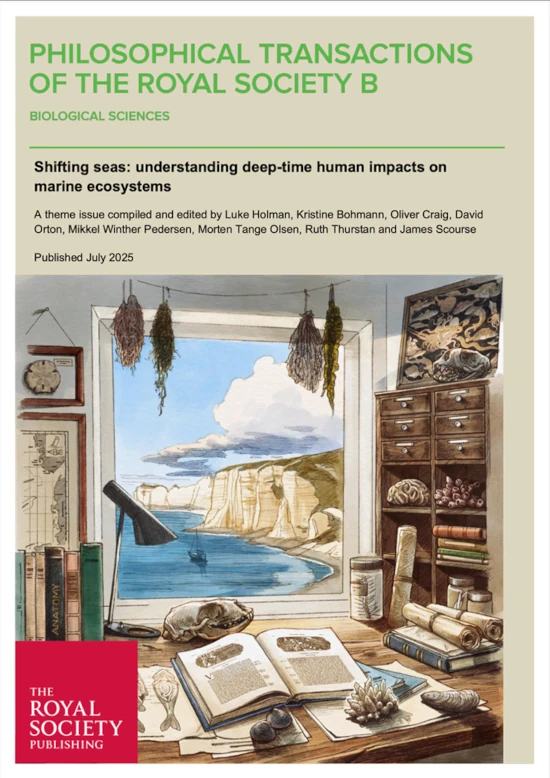Changing oceans documented in new interdisciplinary theme issue
Globe researchers have brought together an interdisciplinary compilation of research studies showing how humans have impacted marine ecosystems through time.

A newly published theme issue in the scientific journal Philosophical Transactions of the Royal Society B reveals the long and complex history of human interaction with the ocean and challenges our understanding of seas across thousands of years. Despite documented impacts, principally through hunting and fishing, the compilation of studies also offers hope for restoring our oceans through the insights gained from the past.
The theme issue is titled “Shifting Seas: Understanding Deep-Time Human Impacts on Marine Ecosystems” and it brings together 16 research articles spanning archaeology, marine historical ecology, marine biology, ancient DNA, stable isotope analysis, Indigenous knowledge systems, and environmental history. Collectively, the 16 scientific articles document thousands of years of marine biodiversity change, from early shellfish harvests and climate-driven species shifts to industrial exploitation and colonial disruptions.
“When we think about ocean change, we often focus only on the last few decades,” says Dr Luke Holman, guest editor and Assistant Professor at Globe. “But this research shows that many of today’s challenges - overfishing, habitat loss, biodiversity decline - have deep historical roots. It also offers an inspiring picture of rich and resilient past oceans, reminding us of what recovery could look like if we act now.”
The issue was guest edited by a team of eight interdisciplinary researchers including Luke E Holman, Morten Tange Olsen, Mikkel Winther Pedersen and Kristine Bohmann from Globe, David Orton and Oliver Craig from the University of York, Ruth Thurstan and James Scourse from the University of Exeter.
Explore the Special Issue
“Shifting Seas: Understanding Deep-Time Human Impacts on Marine Ecosystems”
Published in Philosophical Transactions of the Royal Society B

Issue Contents
Section 1 – Marine biogenic archives
1.Holman et al. – Introduction: Shifting Seas: Understanding Deep-Time Human Impacts on Marine Ecosystems
2.Miller et al. – Changes in Inuit Hunting Practices Coinciding with the Introduction of Firearms in Nunatsiavut: Evidence from a Stable Isotope Analysis of Ringed Seals
3.Genelt-Yanovskiy et al. – Stable isotopic composition of Antarctic and Patagonian marine mammals collected before and during industrial-scale whaling: assessing the baseline for long-term changes in the marine ecosystem
4.Yamoah et al. – Investigating long-term trophic stability in North Atlantic cod (Gadus morhua) through nitrogen stable isotope analysis of amino acids
5.Zampirolo et al. – Continuous mitochondrial diversity of Danube sturgeon species over millennia: insights from ancient DNA
6.Schöne et al. – Shells of Littorina littorea (Gastropoda) – An archive for paleoclimate and seasonal shellfish collection in medieval and early modern Orkney?
7.Reynolds et al. – A sclerochronology defined 600-year baseline of marine dynamics in the North Sea
Section 2 – Human chronicles of the changing sea
8.Walther Mendoza et al. – A window to the past and future aquaculture in the Gulf of California: the abundant times of “Meyibó”
10.Hayes et al. – Ecological legacy of Indigenous dispossession: Disruption of ancestral sea gardens by commercial clam fisheries in British Columbia, 1882–1985
11.McClenachan et al. – “The fish that stop”: Drivers of historical decline for Pacific cod and implications for modern management in an era of rapidly changing climate
12.Cybulski et al. – Historical Ecology of the Southern Central American Pacific Coast
13.del Valle et al. – Systematic review of global historical marine ecology reveals geographical and taxonomic research gaps and biases
Section 3 – Sediment records and ocean futures
14.Holman et al. – Ancient environmental DNA indicates limited human impact on marine biodiversity in pre-industrial Iceland
15.Campbell et al. – Using sedaDNA in coastal and marine contexts to explore past human-environmental interactions in Australia
16.Roberts et al. – Bones, shells and baselines – how the past can inform modern marine management, protection and restoration
Contact
Assistant Professor Luke E Holman
E-mail: luke.holman@sund.ku.dk
